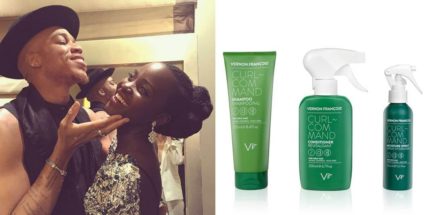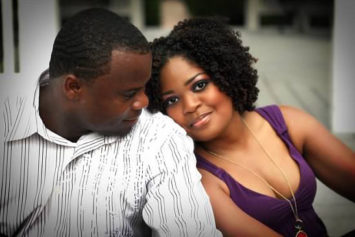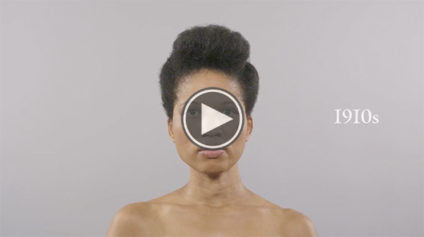How Natural is Too Natural?
When Patrice Grell Yursik began wearing her hair in a wash-and-go style, she got lots of praise. “Women would tell me they wish their hair looked like mine,” said Ms. Yursik, 33, the creator of the blog Afrobella.
While African-American natural-hair advocates of yore, like Angela Davis, embraced a halo of tightly coiled hair, the new “natural” style of choice seems to be longer curls with more definition–which is not always easy to achieve, as Ms. Yursik can attest.
“Many of us have moved beyond the use of harsh chemicals to achieve a different texture, but we’re still walking around with the belief system that led relaxers to such prominence to begin with,” she said.
“The belief that straighter textures and longer lengths of hair are somehow more beautiful comes from what we see around us. Look at the images of black women in the media – if their hair isn’t straight, it’s a very particular type of curly look that’s meant to represent natural hair. It’s another way for the arbiters of mainstream beauty to divide our community.”
When singer Solange Knowles, 26, gave an interview about her hair on Essence.com, this division, referred to as “curlism,” got mainstream attention. Picked up by the popular natural hair blog Curly Nikki, the piece incited vitriolic responses from commenters, who felt Ms. Knowles, whose strands are tightly coiled, was a poor representation of women with natural hair (one person deemed it “unkempt”). “I never painted myself as a team natural vice president,” Ms. Knowles responded on Twitter. “My hair is not very important to me.”
Patrice Grell Yursik, the founder of Afrobella.com.Chuck Olu-AlabiPatrice Grell Yursik, the founder of Afrobella.com.
The negative response to kinky Afros is not universal. Viola Davis, 46, elicited a positive response when she wore her TWA, or “teeny weeny Afro,” as the look is known, on the red carpet at the 2012 Academy Awards. Christina Brown, 25, a social media specialist who founded the natural hair blog, Love Brown Sugar, suggested the approval came because “super short ‘fros on the red carpet,” are a rarity. Instead, “we often see this long voluminous curl as a lust-worthy style. It’s a societal norm that’s hard to break,” she said in a recent interview.
Many “naturals” manipulate their hair texture, using methods like twist-outs, braid-outs and Bantu knot-outs to “stretch” the hair and achieve a longer, more defined curl. Nicole Marie Melton of Bronxville, N.Y., an associate beauty editor at Essence.com, doesn’t think this is a bad thing. “Kinky hair that is not stretched is more prone to breakage along the spirals of the hair shaft,” said Ms. Melton, who is 28. “I wear my hair stretched 100 percent of the time because it offers me more versatility and protection from breakage.”
And Ms. Yursik believes that freedom to wear and celebrate one’s hair texture is still at the heart of the natural hair movement. “I think there are some who are in that ‘defined curls by any means necessary’ mind-set,” she said, “but there are also many naturals who still see this as being about freedom, and taking better care of your healthy, strong hair, no matter the texture.”
By Jessica Andrews with NYTimes Fashion & Style


